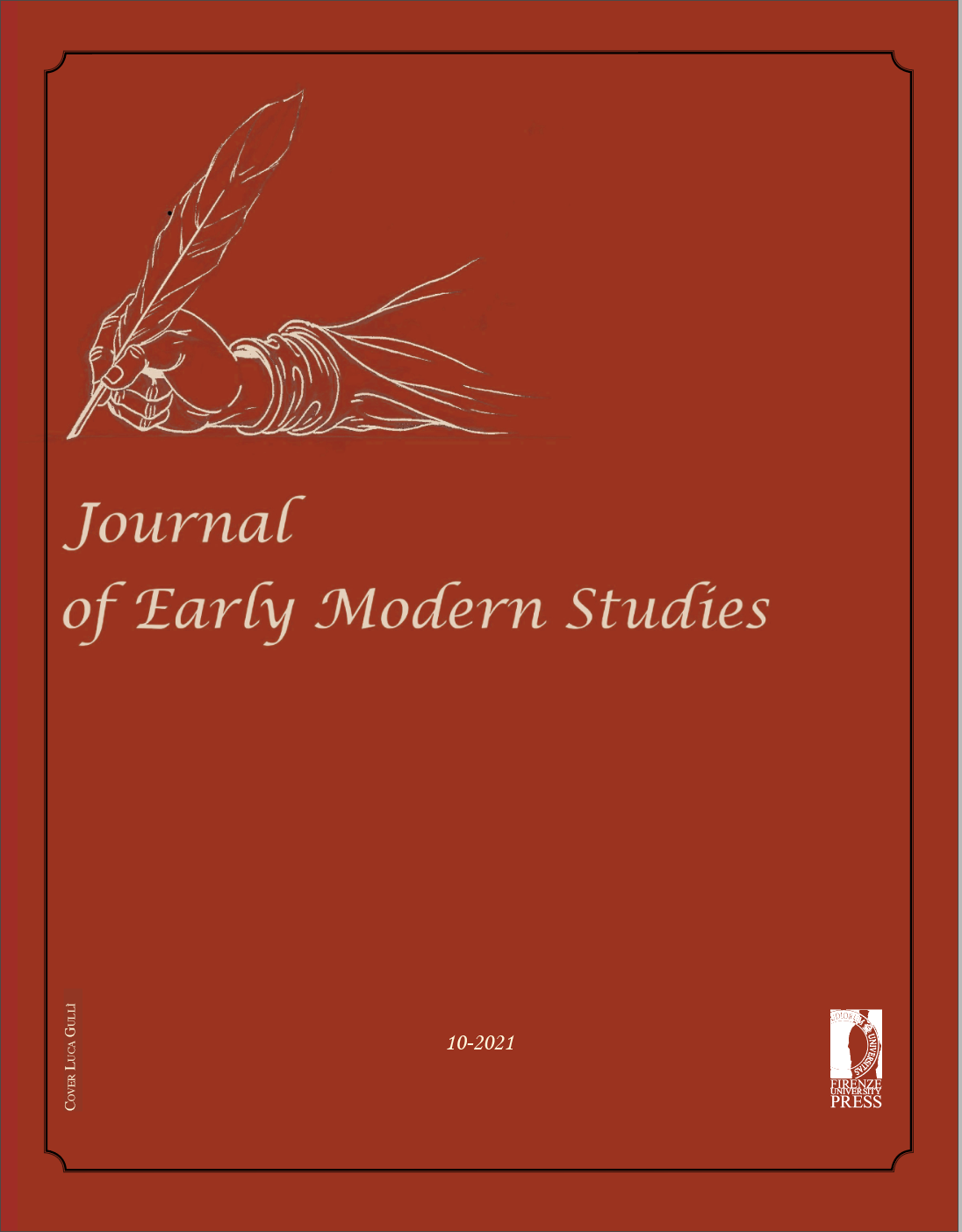Published 2021-03-15
Keywords
- Ambition,
- Davenant and Shakespeare,
- Disease,
- Stoicism
How to Cite
Abstract
The article challenges the dominant critical perception which assumes that Davenant’s Macbeth is a simple adaptation of Shakespeare’s tragedy. Against this reading, and in harmony with Barthes’s theory of the text, Macbeth is here read as a dynamic and independent dramatic agent rather than a copy of a superior text. Seen in this perspective, Davenant’s Macbeth emerges as a manifestation of the Roman Stoics’ moral perception of ambition with its destructive course and tragic end. To the Roman Stoics, ambition is a disease that affects the individual’s soul and leads to his or her ultimate destruction. Macbeth and Lady Macbeth display the symptoms the Stoics associate with this disease: they exist outside the bounds of nature; experience grave unhappiness; and follow Fortune to their deaths. As a result, the play is not only a dramatic manifestation, but rather a genuine moral examination of the key characters’ crimes and their unavoidable punishment. The crimes of Macbeth and his Lady, motivated by their ambition, along with their final downfall are Davenant’s dramatic attempt to control the Restoration public’s behaviour and warn them against unruly emotions. By association, Davenant urges his audience to denounce the English Civil War and prove their allegiance to the newly restored monarchy. Thus, Davenant’s adaptation emerges as an independent play, and as a moral medium which produces a political message suitable to his own challenging time and to the newly restored monarchy.


